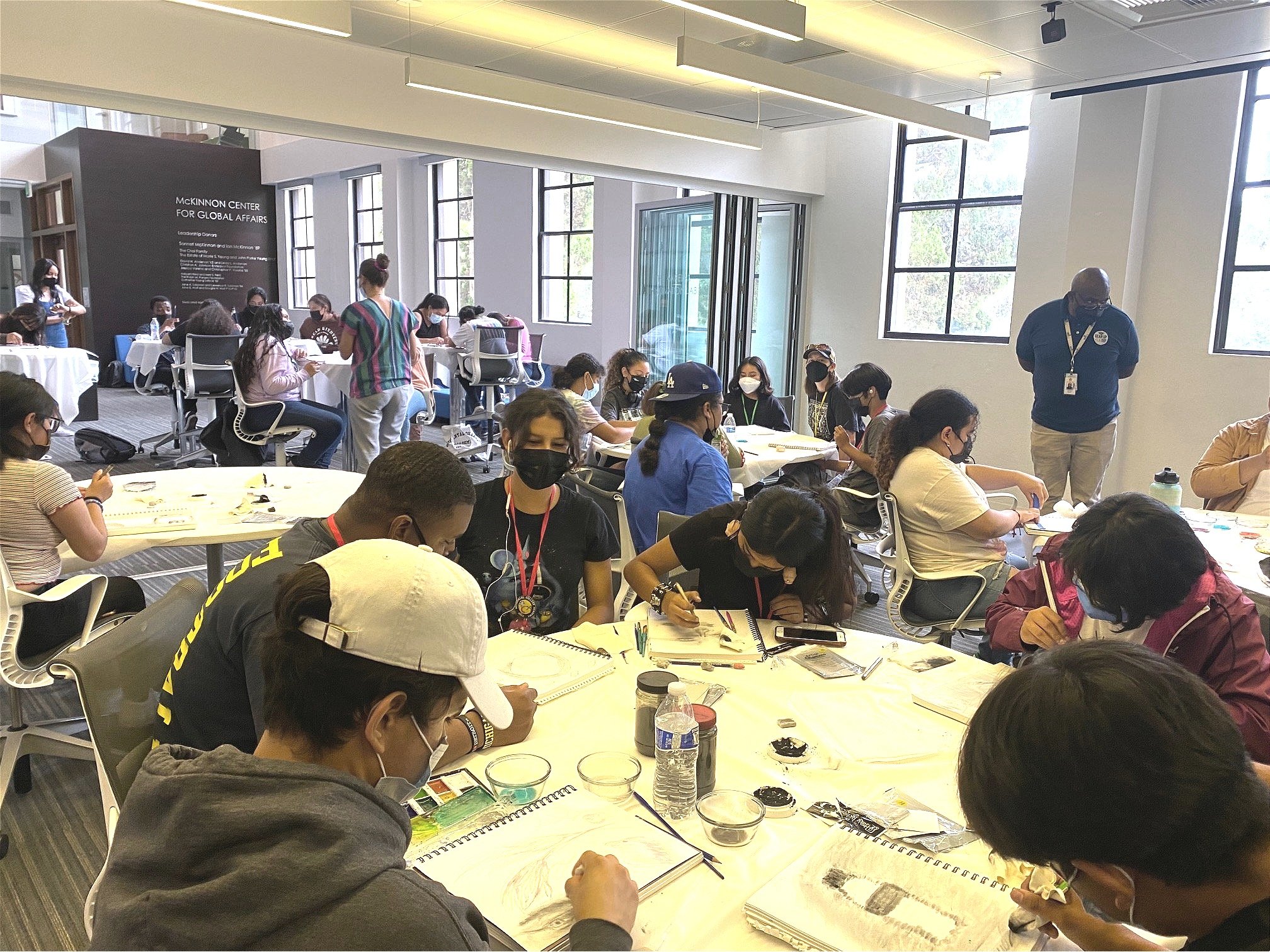
Teaching
I teach a wide range of courses, primarily in the fields of writing, literature, and rhetoric. My recent thematic and theoretical interests include gender and sexuality, nature, feminism, and romance. No matter what the subject, I create my courses based on universal design. This means that I develop courses and assignments that are accessible to all and continually collaborate with students to find what they need to be successful. My courses draw explicit attention to the intersections of course content with the world outside the classroom, centering learning goals that are relevant not only for the given program or department, but also for students’ holistic development.
-
Occidental College, Department of Writing and Rhetoric
A combination writing workshop and community-based learning course, Writing and the Los Angeles Experience examines how Los Angeles shapes and is shaped by those who write about the city. Readings, class discussions, and assignments engage the work of local writers whose work defines LA. Field trips to different areas of the city help students explore the way the city influences those who write about it and the cultural, social, and political forces that make it tick. The work of this course is both critical and creative: students write about the readings using conventional tools of academic writing and rhetoric and respond to their own experiences of the city in reflections, stories, and other creative projects.
-
Occidental College, Department of Writing and Rhetoric
This workshop explores creative nonfiction, a vast field that asks its writers and readers to interrogate the borders between truth and fiction, and between what we often casually think of as either creative writing or academic writing. The course focuses on several sub-genres of creative nonfiction, including personal essay, critique, and cultural commentary. Published essays by a variety of contemporary authors serve as models for students’ writing and are supplemented by discussion, in-class writing exercises, and readings about the craft of writing. At the end of the term, students produce a capstone piece suitable to be submitted for publication.
-
High School Summer Bridge Program, grades 10-11
The OCA is an interdisciplinary program for rising 10th and 11th graders from Los Angeles public high schools that seeks to engage students in their communities and prepare them for college. The OCA curriculum is organized around a series of activities that explore questions of social justice through the lens of art. The program helps students learn about social justice, identity, and community and transfer those ideas into works of art that can engage and transform their communities in a positive way. The OCA strives to create an environment where all students feel free to voice their opinions and to learn, change, and grow together.
-
Occidental College, Department of Writing and Rhetoric
The discipline of rhetoric is, at its most basic, a study of the art of effective communication. This course examines rhetoric as a tool that—while often invisible—undergirds our daily lives, and considers the significance of rhetoric for better understanding a range of social, political, literary, and even scientific issues. By studying rhetoric, alongside its history and theory, students investigate how it organizes and maintains social groups, constructs meanings and identities, coordinates behavior, mediates power, produces change, and creates knowledge. Students also examine how language practices intersect with culture and with identities including class, race, sexuality, and gender.
-
Occidental College, First Year Seminar
In this first year writing course, students study the writing and rhetoric of nature and wanderlust, with particular emphasis on California as a place of exceptional natural beauty and a locus of adventure in the cultural imagination. Readings include literature, critical theory, scientific texts, and culture writing, to facilitate an exploration of nature from the inside out--in other words, from individual affective and psychological relationships to nature to the broader effects of nature on culture and identity. In keeping with the theme, students do not only study these ideas inside the classroom; they also incorporate their own individual adventures in nature, in California or elsewhere.
-
Occidental College, First Year Seminar
While the term “romance novel” today often calls to mind tawdry love stories featuring heaving bosoms and uncontrollable passions, the genre of romance is much more complex than these stereotypes would make it seem. Early examples of romance are sprawling adventure narratives of chivalry, crusades, the supernatural, and yes, occasionally even love. Today, these tales’ descendants include not only the love stories we associate with the genre of romance, but also fantasy novels, Westerns, superhero narratives, and more. This course explores the genealogy of romance from the Middle Ages through modern day, asking not only what constitutes a romance, but also what the continuously popular genre can teach us about readers’ desires and values across history.
Course Highlights
Occidental College
Writing and Rhetoric Department
Argument and Rhetoric Across the Disciplines
The Art of Essay Writing: Writing, Gender, and Sexuality
The Art of Essay Writing: Writing, Rhetoric, and Wanderlust
Creative Nonfiction
Feminist Rhetoric and Social Change
Popular Science Writing
Theory and Pedagogy of Writing
Writing and the Los Angeles Experience
First-Year Seminar Program
Gender and Pop Culture
Isn’t It Romantic? Romance from the Middle Ages to Modern Day
Nature from the Inside Out
English Department
Early British Literary Traditions
Medieval Romance
Shakespeare Survey
Occidental College Academy (grades 10-11)
Social Justice + Art in Los Angeles
New York University
English Department
Representations of Women: Genre, Medium, and Gender
92nd Street Y
Exploring Hamlet
Shakespeare’s Comic Heroines
Shakespeare on Film
Shakespeare’s Tragedies
Mills College
Community Teaching Project
Memoir Workshop